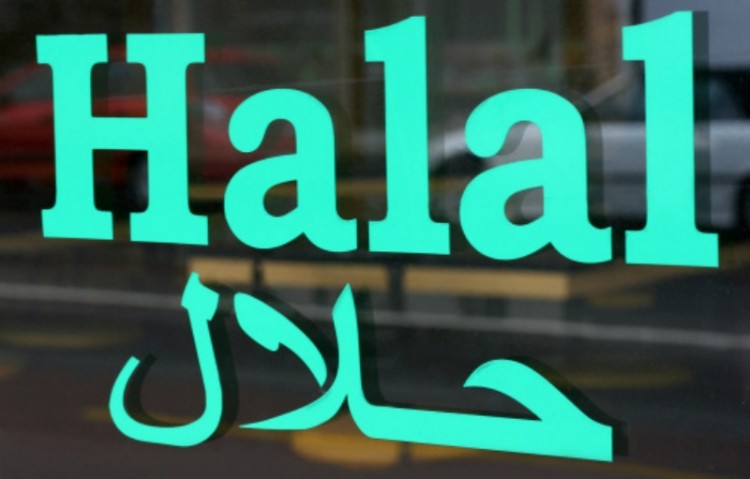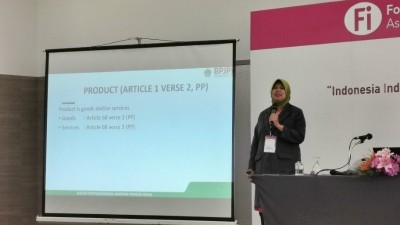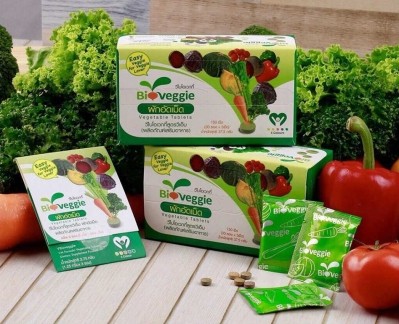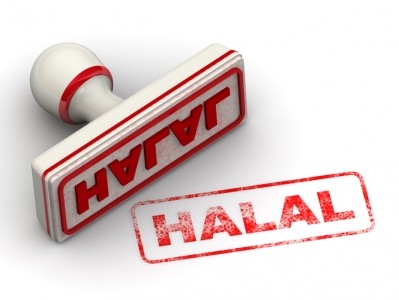Massive potential: Why are ASEAN halal food exports growing at a slower rate than global demand?

“With Muslim spend on food and beverages growing at 6.1% and forecast to reach US$1.9tn by 2023, there are significant opportunities for investment and the creation of global halal food brands,” said the State of the Global Islamic Economy Report 2018/2019.
That said, the region’s halal food exports industry has not been nearly as developed as could be expected.
Exports from Malaysia, touted as the region’s ‘most comprehensive’ halal ecosystem, were valued at only some RM40bn (US$9.7bn) last year, with halal F&B and halal food ingredients each taking RM14.5bn (US$3.5bn) respectively.
This number (US$7bn) represents just 0.5% of the 2017 halal F&B global value of US$1.3tn, and a similar situation was reported by the Indonesia Halal Economy and Strategy Roadmap 2018/19, which placed Indonesia’s 2017 halal foods export value at US$4bn, or 0.3%.
Philippines’ halal numbers stood at some US$560mn, with 80% to 90% of this coming from food and beverage exports.
Both Malaysia and Indonesia are ranked within the world’s top 15 countries for halal food industry development strength.
Malaysia: Mentoring, money and markets needed
According to Datuk Wan Latiff Wan Musa, Malaysia External Trade Development Corporation (Matrade) CEO, the lack of growth in Malaysia is because the majority of local halal food companies are small and medium enterprises without the capability to scale up.
Matrade is the country’s national trade promotion agency.
“Looking at our halal ecosystem, the certification and standards are already there. But what about the capability of our companies? About 98% of them are SMEs and they need mentoring, money and markets,” he told The Edge.
“A lot of the SMEs are involved in processed food, which is why we are spending more money on developing this industry than the others.”
There are plentiful benefits in the country for halal food manufacturers in the country: Those that opt to operate from designated ‘halal parks’ are granted 10 years of full income tax exemption, five years of 100% income tax exemption on CAPEX, and five years of exemption from income tax coming from export sales.
This is in addition to import excise exemptions for raw materials used to make their halal products.
With all these incentives in place, what is missing is the investment, skill and understanding to thoroughly leverage on these, according to Datuk Wan Latiff.
“SMEs need to understand all the elements of marketing, from branding, distribution channels and messaging to communications strategy. Having your products certified halal does not mean you can sell them in the global market,” he said.
“There are other international standards that Malaysian SMEs have to get, such as HACCP.”
“We [also] need more of such investments from big brands in the country to leapfrog the industry in terms of supply capacity.”
Multinational big brands, that have centred halal manufacturing plants in the country include Swiss giant Nestle, Korea’s Samyang Foods, and Thailand’s CP Foods.
At present, Malaysia is also looking at China as a major halal foods export destination with a focus on premium products.
As of Q3 2018, China was the second largest halal food export destination for Malaysia.
“From our experience together with our trade promotion agencies, the demand from China for food products is especially very high,” Malaysia’s Halal Industry Development Corp (HDC) Vice President Hanisofian Alias told FoodNavigator-Asia previously.
“In an interview with some of our companies which are exporting to China, they said the sales growth is almost two digits every year.”
As Chinese consumers’ standards of living and spending power grow, the consumers tend to see imported products as a sort of premium product, he added.
“(That is why) for Malaysia, when we export to China, we always like to position our product as a type of premium product.”
Indonesia: More halal-certified finished foods needed
Indonesia has the largest Muslim population in the world at over 220 milllion, and according to the country’s Halal Lifestyle Centre Chairman Sapta Putra, the country’s halal exports took the top spot amongst all Organization of Islamic Cooperation (OIC) countries.
However, most of the exported food items were in the form of raw materials, mainly due to a lack of halal-certified processed and/or finished food items, and this was impacting the country’s ability to compete with finished products from other countries, he told Tempo.
“We are still exporting raw materials, such as vegetable oil, tea, coffee, and fisheries products. This is a contrast to other OIC nations that are starting to export products with added-value or upstream products,” said Putra.
He also expressed concerns that this would affect export numbers moving forward, and called for Indonesian firms to halal-certify more products – but this is not exactly straightforward in Indonesia.
Speaking on the halal certification process in the country last year, Cucu Rina Purwaningrum from the Majelis Ulama Indonesia (MUI) said that a key aspect of the application that tends to confuse applicants is the difference between the halal certificate and Halal Assurance System (HAS) status.
“A halal certificate is issued based on product groups, like processed meats, beverages, etc. but many people [tend to overlook] this. If you register one particular product group, you need to have one registration only. If your company deals with several different product groups, then you need multiple registrations,” she said.
“HAS status is different, it is manufacturer/facility-based and is issued to each factory or facility, and also valid for two years. But for this, service companies that do not produce products, e.g. warehouses, retailers and transporters can also apply to be granted HAS status.”
Currently, all application processing has been moved to the purview of the country’s Halal Product Assurance Agency (BPJPH), although MUI retains control over the Muslim regulations.
As of 2019, a Halal Law dictating mandatory halal certification for all food products in Indonesia has officially been enforced, the imposition of which is led by BPJPH.
Philippines: Tapping on booming global market
The Philippines may not be listed in the Top 15 countries for halal food industry, but it has the second largest population in the ASEAN region, and the government has expressed specific interest in developing the country’s halal export industry.
According to Philstar, the Department of Trade and Industry’s (DTI) Export Marketing Bureau Assistant Director Anthony Rivera said that the agency was targeting a 6% to 8% rise in halal exports this year from last year’s US$560mn.
Some 90% of halal exports from the Philippines in 2018 came from food and non-alcoholic beverages.
In addition, Trade Secretary Ramon M. Lopez pushed for food firms in the country to maximise the potential in the growing demand for halal products.
“Halal is not just for the Muslims; it is a way of life. It connotes purity, cleanliness, safety, quality. [Halal-certified] products are associated with these attributes,” he said when speaking at the 2019 Philippine National Halal Conference.
“[We can tap on] halal’s booming global market and taking advantage of more business opportunities.
“[With] greater collaboration between various sectors, we can support more Micro, Small and Medium Enterprises (MSMEs), encourage them to do and grow their businesses, and help us in developing more halal hubs in the country catering to domestic, as well as export markets.”
Philippines recently launched a new national halal logo, and established an Asian Halal Centre in 2016 to house halal companies.



















